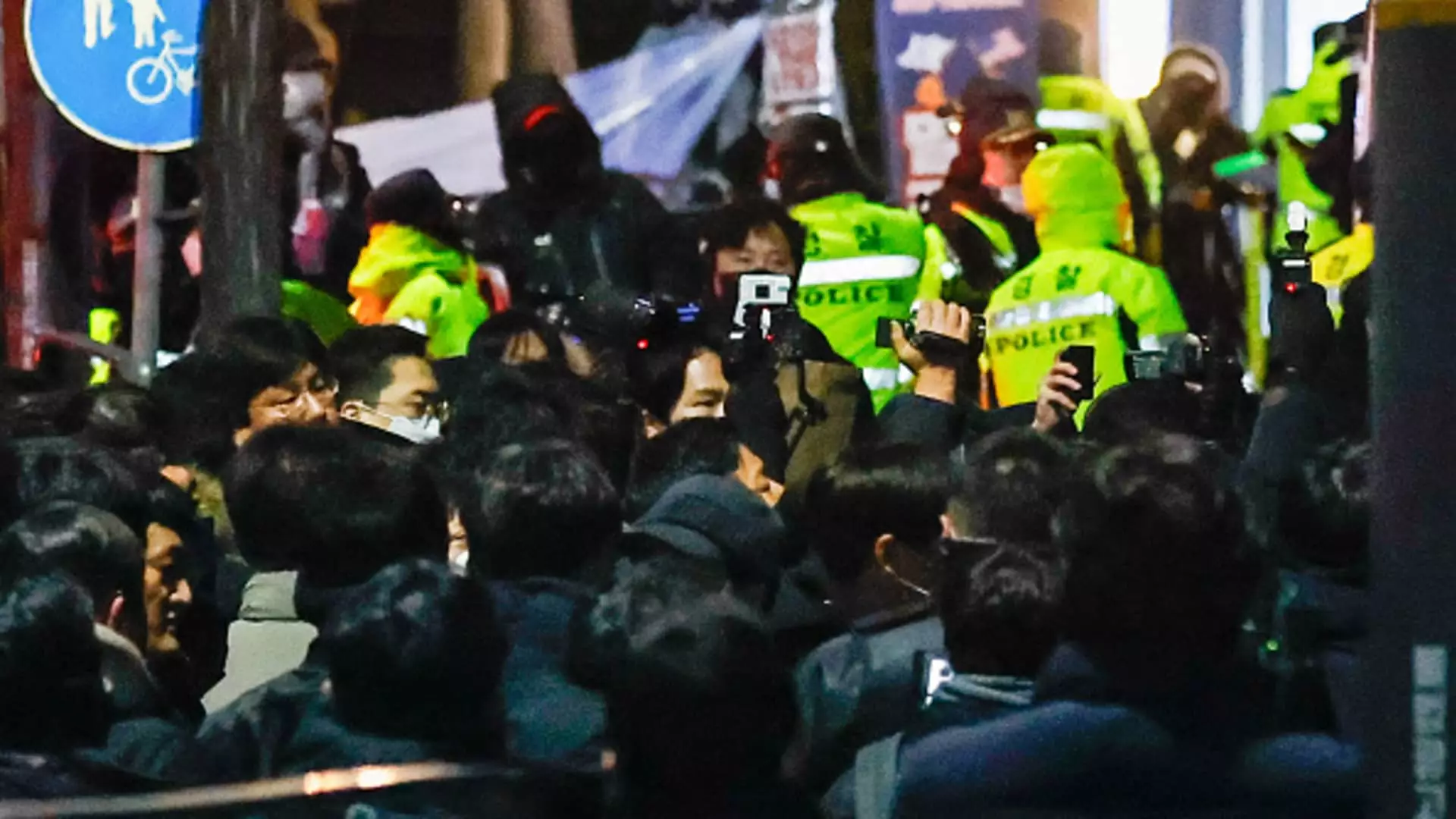The recent arrest of South Korean President Yoon Suk Yeol marks a significant moment in the nation’s political landscape. This event is the first of its kind for a sitting South Korean leader, further deepening the country’s historical narrative of political strife and corruption. Following a failed arrest attempt on January 3rd, in which Yoon was shielded by his Presidential Security Service, authorities made a more forceful attempt on [subsequent dates](#) that saw approximately 3,000 police officers deployed.
The backdrop to Yoon’s arrest lies in accusations of insurrection stemming from his controversial declaration of martial law in December 2023. His purported motives, framed as necessary to shield the nation from North Korean threats, have been scrutinized as self-serving and politically motivated.
Yoon’s assertion that “the law of the country has collapsed” during a pre-recorded video statement reflects the charged atmosphere surrounding his administration. His claims of illegal investigations further complicate an already fraught relationship between the presidency and the judiciary. As Yoon gears up to face the Corruption Investigation Office (CIO), the potential for political upheaval looms large. The ramifications of his actions are being felt beyond the legal realm; South Korean markets demonstrated muted responses amid rising concerns over economic instability.
While the Kospi index rose marginally by 0.21%, the small-cap Kosdaq decreased by 0.44%, suggesting an unease among investors. Additionally, the South Korean won weakened slightly against the U.S. dollar, trading at 1,459.75, revealing that even at the financial level, confidence in governance is waning.
Impeachment proceedings against Yoon commenced shortly after his declaration of martial law was voted down in parliament—a move many view as historical given the rarity of such actions in the nation’s modern era. Yoon’s attempt to wield power through emergency measures prompted strong resistance from lawmakers who managed to challenge his authority barricaded by police. The Constitutional Court began impeachment hearings on January 14 but was adjourned shortly thereafter, creating a vacuum of legal clarity and precipitating a state of political limbo.
Facing serious charges that carry the potential for severe penalties, including the death sentence for insurrection, Yoon’s political future hangs in the balance. Analysts now ponder whether this crisis will catalyze systemic reform or merely reinforce existing political fractures.
The Broader Implications for South Korea
Beyond the immediate implications for Yoon’s personal fortunes, his arrest raises critical questions about the future of South Korea’s democracy. Will this incident catalyze a wave of accountability for corrupt practices at high levels of government, or will it set a precedent for further political instability?
Yoon Suk Yeol’s legal battles, coupled with the public’s waning trust in government institutions, suggest that South Korea is at a pivotal crossroads. The outcomes of the ongoing impeachment proceedings and criminal investigations will likely resonate across the political spectrum, shaping the future of governance in one of Asia’s most dynamic democracies. Time will tell whether this historical moment serves as a catalyst for change or reflects a cycle of political retribution and chaos.

Leave a Reply